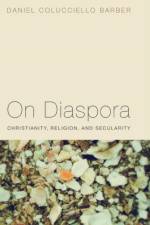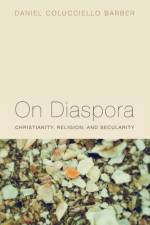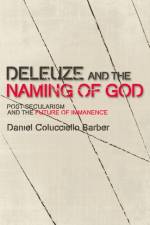- Christianity, Religion and Secularity
av Daniel Colucciello Barber
327
Description:A great deal of attention has been given over the past several years to the question: What is secularism? In On Diaspora, Daniel Barber provides an intervention into this debate by arguing that a theory of secularism cannot be divorced from theories of religion, Christianity, and even being. Accordingly, Barber''s argument ranges across matters proper to philosophy, religious studies, cultural studies, theology, and anthropology. It is able to do so in a coherent manner as a result of its overarching concern with the concept of diaspora. It is the concept of diaspora, Barber argues, that allows us to think in genuinely novel ways about the relationship between particularity and universality, and as a consequence about Christianity, religion, and secularism.Endorsements:"Writing with extraordinary philosophical imagination, Barber provides an account of Christianity that will challenge Christian and non-Christian alike. Barber will soon be recognized as an intellectual force whose work cannot be ignored."-Stanley HauerwasDuke University"What a mysterious meditation unfolds here, oscillating subtly ''between namelessness and excessive signification.'' May its illumining construction of diaspora as a composition of differences in their ''intermattering'' refresh current conversations about religion, Christianity, and the secular; about immanence and negative theology; about the co-constitution of beings beyond preexisting identities and the construction of value."-Catherine KellerDrew University"What are we to do, asks Daniel Barber, with Christianity? With our unavoidable inheritance of its tradition? Barber''s thoughtful, albeit astonishing, answer is that we must formulate, finally, a concept of Christianity, gather it out of its disseminated state, from the originary diaspora Christianity has yet to achieve. Whether Christianity, ''actually existing Christianity,'' retains the potential for such a challenge appears nowhere more in doubt-and nowhere more necessary-than in this unflinching meditation."-Gil AnidjarColumbia University"This bold Spinozist-Deleuzian (and original) argument for diaspora as that which expresses the profound link between Christianity and differentiality (discontinuity) is simultaneously an extraordinarily nuanced and lucid critique of Pauline thought, of the secular, and of the continuity between Judaism and Christianity. It marks the emergence of a major new voice in the philosophy of religion."-Eleanor KaufmanUniversity of California, Los AngelesAbout the Contributor(s):Daniel Colucciello Barber teaches in the Department of Philosophy and Religious Studies at Marymount Manhattan College, in New York City.



